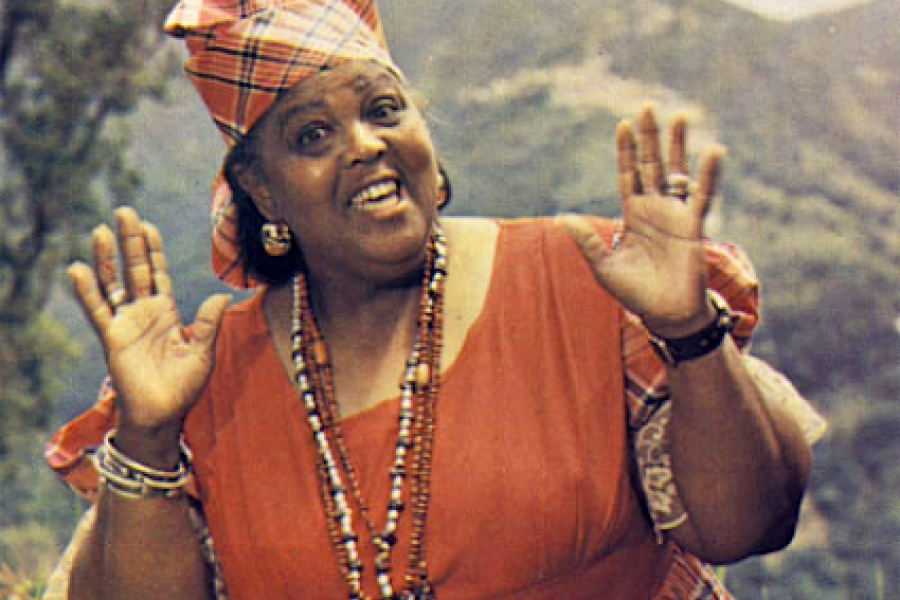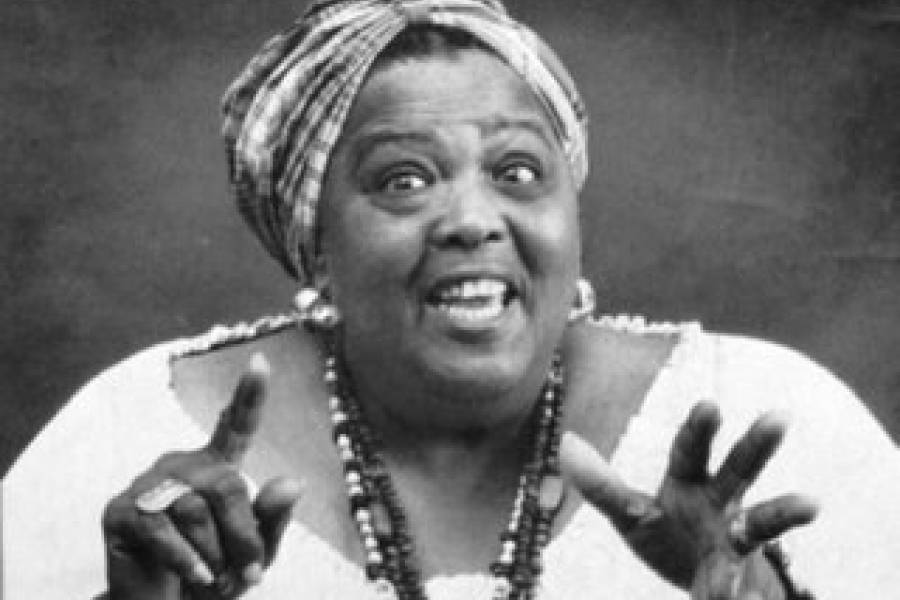The life of Louise Bennett Coverley (September 7, 1919-July 26, 2006) spanned an evolution in the identity of the Jamaican people.
Born in Downtown Kingston at 40 North Street, she was raised during a tumultuous time alongside the growth of Jamaica's Labour Movement, whose leaders were agitating for racial equality. Miss Lou became an outspoken poet, social commentator, and performer at an early age, converting thick Patois -- considered at the time the language of the illiterate underclass -- into a national art form and a source of pride.
Miss Lou began publishing books in Jamaican Creole in the early 1940s, before pursuing opportunities in London to further her performance career. She brought Jamaican folk culture to media and stages around the world, giving presence to a nation yearning for independence. Jamaican folk culture is based overwhelmingly on African traditions, and in bringing her stories and poems into performance and literary forms, Miss Lou validated an integral part of the country's heritage that had for centuries been scorned.
While there are still plenty of examples in contemporary Jamaica of shame of an African past, Miss Lou dispelled the taboo associated with this rich heritage with her warmth and lyrical genius. When Jamaica gained its independence in 1962, Miss Lou's popularity was further cemented as a proven ambassador for the Jamaican identity in the birth of a new era. Miss Lou was a founding member of the Little Theatre Movement.



